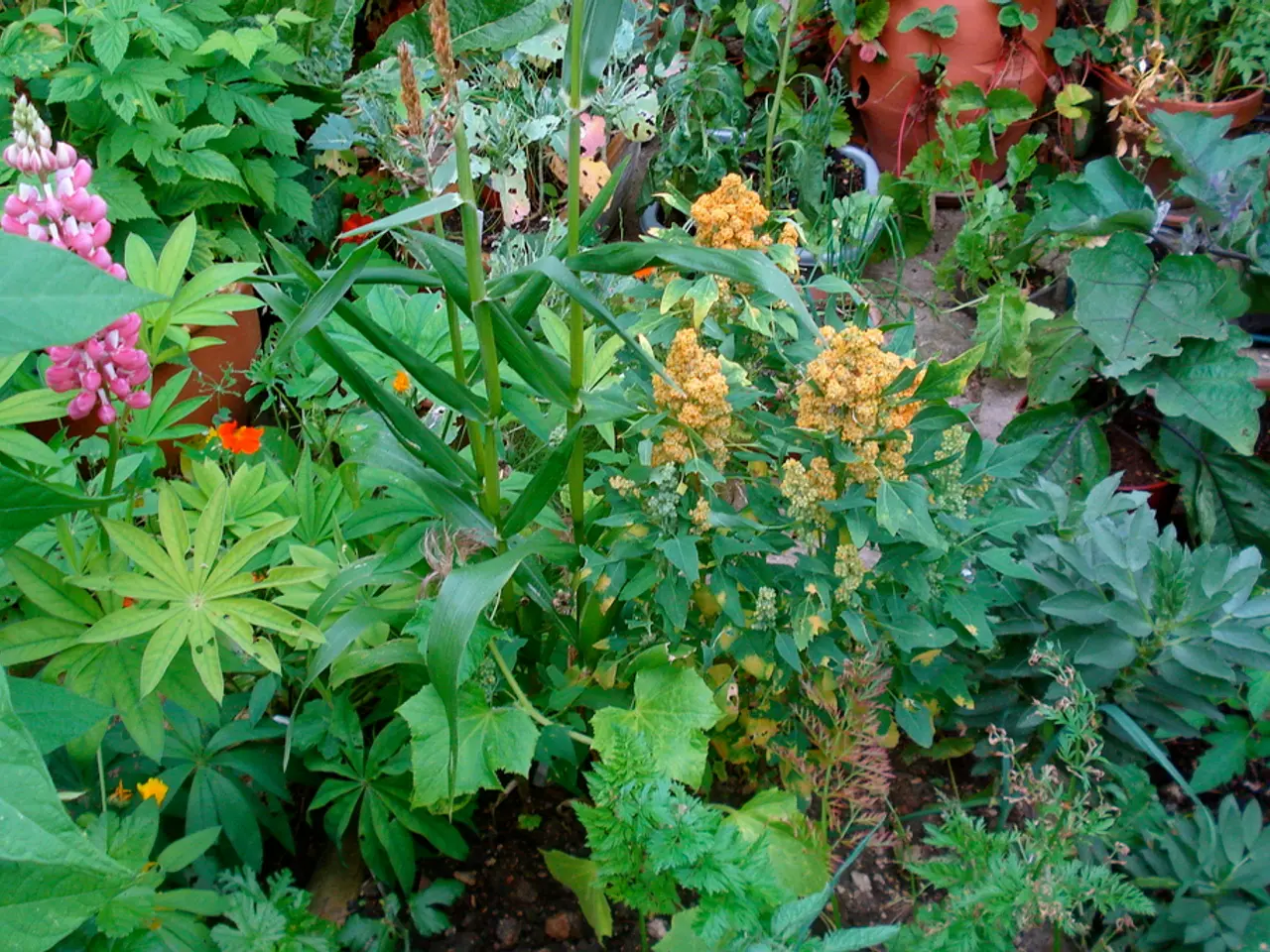Exploring the Mental Health Advantages of Gardening: A Guide
Gardening has long been recognized as a therapeutic activity, offering numerous mental health benefits. Whether you're a novice or an experienced green thumb, gardening can be a rewarding and transformative hobby.
For those looking to start, it's recommended to begin with small containers filled with soil, or purchase indoor plants. You could also join or volunteer at a community garden, providing an opportunity to learn from others and connect with nature. It's essential to approach gardening with manageable tasks, growing what you like, and learning about plants without breaking the bank initially.
One of the lesser-known benefits of gardening is its impact on our microbiome. Soil hosts an ecosystem of probiotics, which can strengthen our immune system, a vital part of our overall health.
Gardening can also help develop a sense of acceptance, as outcomes can't always be controlled. This acceptance can be particularly beneficial for those dealing with mental health issues, as it encourages resilience and a positive mindset.
The natural microbe, Mycobacterium vaccae, found in soil, has been shown to improve the immune system and minimize symptoms of serious diseases. Moreover, when contacted or inhaled, it triggers the release of serotonin in the brain, acting as a natural antidepressant.
Studies have demonstrated that gardening can help reduce stress, anxiety, and depression. For instance, a study of healthy women attending garden classes twice a week showed a marked improvement in symptoms of stress, anxiety, and depression.
Gardening can also provide a meditative space, offering a chance to disconnect from the hustle and bustle of daily life. It can help lower BMI by encouraging physical exercise, and can be pursued year-round, even in winter, for planning and performing chores.
Children can benefit immensely from gardening, too. It can help them acquire a sense of connection to the earth and what they eat. Gardening has been shown to help children with autism and behavioral problems, and can be beneficial for those with dementia or Alzheimer's, improving cognitive awareness and mental state.
For those dealing with PTSD, gardening has also shown marked improvement in symptoms. The use of gardening for emotional and mental well-being has been researched since the 19th century, with numerous studies indicating a positive influence.
Gardening can neutralize perfectionism, encouraging new experiences and a connection to nature. It can provide an opportunity to learn something new, even in the face of failure. And it can help develop good relationships, both with humans and nature.
In conclusion, gardening offers a myriad of mental health benefits, from reducing stress and anxiety to strengthening the immune system. Whether you're looking to start a new hobby, improve your mental health, or simply connect with nature, gardening could be the perfect solution.
Read also:
- Peptide YY (PYY): Exploring its Role in Appetite Suppression, Intestinal Health, and Cognitive Links
- Toddler Health: Rotavirus Signs, Origins, and Potential Complications
- Digestive issues and heart discomfort: Root causes and associated health conditions
- House Infernos: Deadly Hazards Surpassing the Flames








